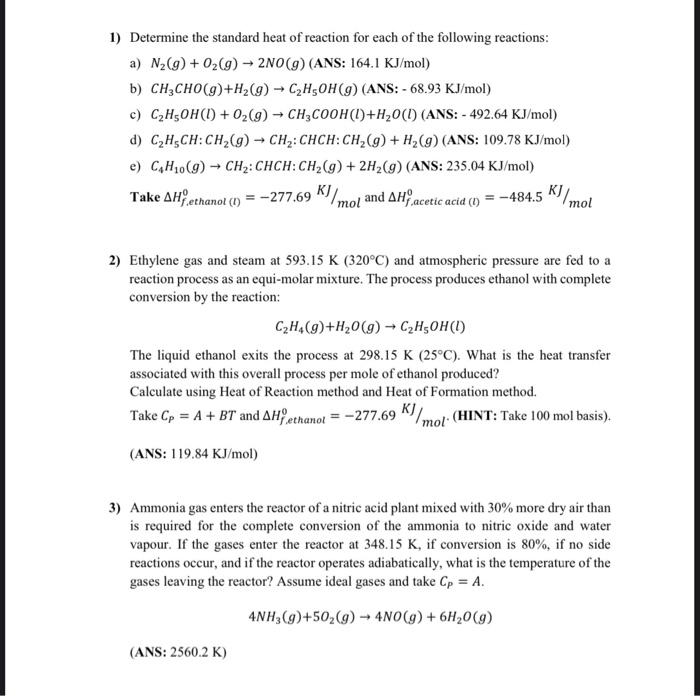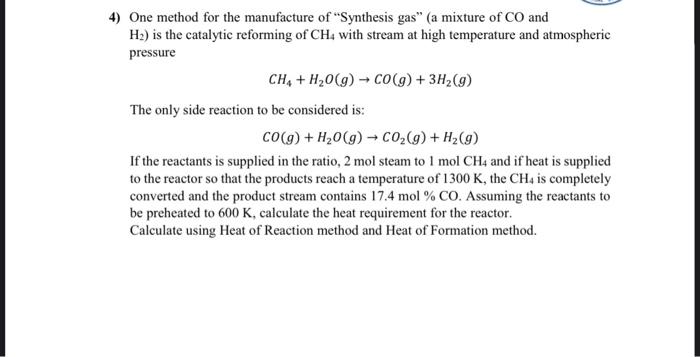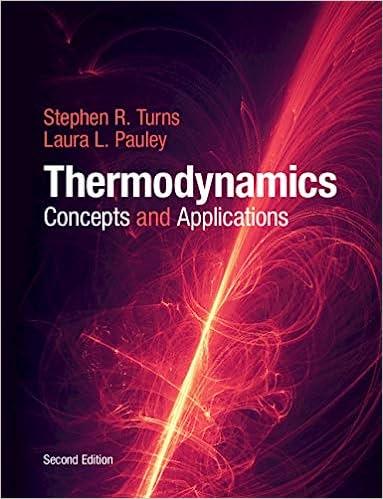Answered step by step
Verified Expert Solution
Question
1 Approved Answer
1) Determine the standard heat of reaction for each of the following reactions: a) N2(g)+O2(g)2NO(g) (ANS: 164.1KJ/mol ) b) CH3CHO(g)+H2(g)C2H5OH(g) (ANS: 68.93KJ/mol ) c) C2H5OH(l)+O2(g)CH3COOH(l)+H2O(l)(


Step by Step Solution
There are 3 Steps involved in it
Step: 1

Get Instant Access to Expert-Tailored Solutions
See step-by-step solutions with expert insights and AI powered tools for academic success
Step: 2

Step: 3

Ace Your Homework with AI
Get the answers you need in no time with our AI-driven, step-by-step assistance
Get Started


